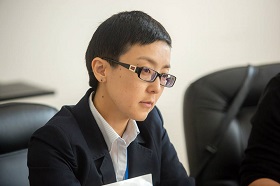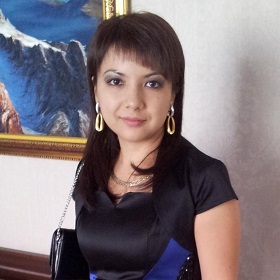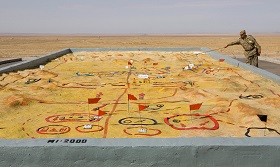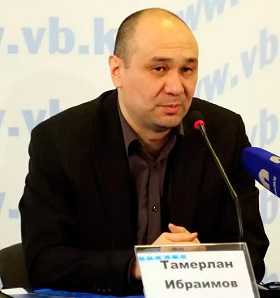Kyrgyzstan Experts’ Polemic: “Kyrgyzstan and the EEU: Better In than Out”
(no votes) |
(0 votes) |
On January 1, 2015, the Eurasian Economic Union (EEU) – a union of Russia, Belarus and Kazakhstan – was officially launched. Armenia’s accession treaty came into force on January 2, 2015, while Kyrgyzstan is set to join the Union in May 2015. Tajikistan is taking an interest in the EEU as well. During a meeting between the Russian and Uzbek Presidents in Tashkent on December 10, 2014, the parties expressed their readiness to hold consultations on the creation of a free trade zone between Uzbekistan and the EEU. Kyrgyzstan is one of those countries where the pros and cons of integration with the EEU appear to be under intense discussion. RIAC contacted Kyrgyz experts to understand the tone of debate and differences of opinion on the problems and prospects of the EEU as seen from within the country.
On January 1, 2015, the Eurasian Economic Union (EEU) – a union of Russia, Belarus and Kazakhstan – was officially launched. Armenia’s accession treaty came into force on January 2, 2015, while Kyrgyzstan is set to join the Union in May 2015. Tajikistan is taking an interest in the EEU as well. During a meeting between the Russian and Uzbek Presidents in Tashkent on December 10, 2014, the parties expressed their readiness to hold consultations on the creation of a free trade zone between Uzbekistan and the EEU.
Today, the common EEU market holds 180 million people. It is the largest integration union in the world, with the potential to grow in attractiveness for other countries. But the economic downturn in Russia due the imposition of sanctions has adversely impacted the economies of Kazakhstan and Belarus, uncovering flaws in the functioning of EEU mechanisms. This has put potential new members on the alert, prompting a new wave of incessant debates about the expediency of joining the EEU.
Kyrgyzstan is one of those countries where the pros and cons of integration with the EEU appear to be under intense discussion. RIAC contacted Kyrgyz experts to understand the tone of debate and differences of opinion on the problems and prospects of the EEU as seen from within the country. These experts were asked five identical questions in order to identify any similarities and differences in their views on the topic.
1. How are the goals and objectives of the EEU perceived in Kyrgyzstan?

National Institute for Strategic Studies of
the Kyrgyz Republic
Chinara Esengul, Deputy Director of the National Institute for Strategic Studies of the Kyrgyz Republic:
Kyrgyzstan is facing serious challenges in socio-economic development, so we want to view the EEU as a framework for solving economic problems. The Union could help us solve problems related to regulating migration flows, facilitate the exchange of experience, and improve the education of our population. But the issue that worries Bishkek today is whether the EEU can manage to keep the economic integration framework without excessive politicizing the Union.
Tamerlan Ibraimov, Director of the Bishkek Centre for Political and Legal Studies:
There are two views of the EEU in the country. The first one is official and is promoted by the Kyrgyz authorities. Officials see in the EEU an opportunity to create a common market, to expand foreign economic and political cooperation and as a result to solve long-standing economic and political problems in the country. Hence, the tasks are as follows: common customs borders and the promotion of production within the EAEU. The authorities say that if 1Kyrgyzstan does not join, the country will face economic troubles: the borders with its neighbors will be sealed and trade reduced. The keynote of all these arguments is that Kyrgyzstan has a Hobson’s choice: it is better to join the EEU than to stay out of it.
A “reset” of relations among Central Asian republics would be possible after a change of political elites in all of them.
The second view is the one of society. The population’s attitude towards Kyrgyzstan's accession to the EEU is rather ambiguous. Some believe that the Union will strengthen cooperation between the member countries, which is beneficial to all. Others see the EEU as Russia's attempt to strengthen its influence in the post-Soviet space. Therefore, the issue of Kyrgyzstan’s accession to the EEU remains under debate.
Zamira Muratalieva, expert at the Institute of Strategic Analysis and Forecasting at the Kyrgyz-Russian Slavic University:
The opponents of Kyrgyzstan’s accession to the EEU perceive this association as a political “alliance of the three dictators” without any economic benefits. But talking about the political unification is quite premature. The EEU country-members do not speak with one voice on international issues; they do not discuss the prospects of creating a single parliament. But I wouldn’t rule out a possible transition to a higher level of integration associated with a political union.
2. How can the EEU promote or hinder the solution of economic problems in Central Asia?
Chinara Esengul:
The establishment of the EEU is no substitute for regional integration inside Central Asia. Sub-regionalism is needed to solve the problems of Central Asia, and there are many of them. They continue to include the issues connected to borders, limited water resources, and cross-border trade. But the EEU makes Central Asian integration ipso facto impossible. On the other hand perhaps, this is the objective reality, since the countries of the region have failed to construct Central Asia as a single region. The EEU brings the republics of the region closer to Russia and only then does it make sense to talk about enhancing potential cooperation between other member countries of the organization with each other. I believe that a “reset” of relations among Central Asian republics would be possible after a change of political elites in all of them.
Tamerlan Ibraimov:
Each republic in Central Asia has a large domestic market, and the EEU can help develop it further. But any economic union brings more benefits to countries in which the economy is more developed and technologically advanced, making production costs lower. Central Asian countries that can compete with other members of the EEU have a good chance to solve this problem by expanding the market for their products and services. Accordingly, uncompetitive republics run the risk of facing even more economic problems than they did before joining the EAEU.
Zamira Muratalieva:
Central Asia is full of contradictions and unresolved problems. More than twenty years of independence have shown that that regional integration stands no chance of developing. It is easier for republics to come to terms on a bilateral basis or within the framework of international organizations. I do not rule out that the EEU may contribute to resolving or, on the contrary, exacerbating such Central Asian problems as creating jobs for the unemployed, lifting customs tariff barriers, and settling water and border disputes. Kyrgyzstan hopes that the EEU will help develop a transport and logistics system in the region and strengthen the security of the republics in general. But there is little doubt that due to increased customs duties, the EEU will indirectly encourage a reduction in trade with Central Asian countries outside the Union, which generates new risks.
3. How might the EEU creation affect the relations of the Central Asian republics with other counties or international organizations?
Joining the EEU will have a positive effect on the interactions of Central Asian countries with organizations in which Russia plays the key role.
Chinara Esengul:
The current but not very constructive relations between Russia and the West do have an effect on the relations of the Central Asian republics, in particular Kyrgyzstan, with Russia and the West. But the European Union and the United States have always placed an emphasis on the importance of pursuing an independent course by the countries in our region. Therefore, our relationship can develop in a constructive way with the countries of both the West and the East.
Tamerlan Ibraimov:
Joining the EEU will have a positive effect on the interactions of Central Asian countries with organizations in which Russia plays the key role. The CSTO is one such example. China, a key SCO country, is interested in promoting relations with Central Asia in any form, including the EEU framework. Relations with the EU, the WTO and other international organizations will not change much due to the accession of certain Central Asian republics to the EAEU. Perhaps, this relationship may become less intense, as the emphasis in international economic cooperation of the region will be shifted to the EAEU. However, another scenario is possible too, meaning that such cooperation, on the contrary, may well be enhanced. Kazakhstan's accession to the WTO may contribute to this. It is of primary importance for Kyrgyzstan, since within the framework of the WTO, trade between the two countries becomes more predictable and will be based on clear-cut rules.

Strategic Analysis and Forecasting at the
Kyrgyz-Russian Slavic University
Zamira Muratalieva:
The accession of Kyrgyzstan to the EEU has already adversely reflected the county’s relations with the US and the EU. The analysis of recent speeches by American diplomats illustrates their negative reaction to the course of closer relations with the EEU being pursued by the Kyrgyz authorities.
4. Economic integration implies a readiness to share the risks of all members of the Union. In your opinion, how might economic crises in other country-members of the EEU affect the economy of your country?
Chinara Esengul:
I believe there is an understanding and willingness in the EEU to support countries with weaker economies in the event of crises. But rendering such mutual support in practice is a long way off. Countries can help each other on a bilateral basis, but the mechanisms of such assistance in the integration format have not yet been provided for. The EEU is likely to face difficulties in carrying out its activities due to the tangled military-political situation in the post-Soviet space, the instability in Afghanistan, tensions between the West and Russia, as all this is closely connected to issues of political economy.
There is an understanding and willingness in the EEU to support countries with weaker economies in the event of crises. But rendering such mutual support in practice is a long way off.
Tamerlan Ibraimov:
Economic difficulties in Russia or Kazakhstan directly affect the economy of Kyrgyzstan due to its dependence on trade with these countries. The earnings of Kyrgyz labor migrants hinge on the development of the economies of Russia and Kazakhstan. Notwithstanding this interdependence, the willingness of EEU to help countries with weaker economies is not an obvious fact. The reluctance of Kazakhstan and Belarus to share with Russia the risks resulting from the imposition of economic sanctions against Moscow testifies to this. Having joined the EAEU, Kyrgyzstan is even less willing to assume responsibility for the weakness of other national economies. Generally speaking, the economic difficulties due to political reasons in any EEU country-member are causing a controversy in Bishkek related to the need to share the risks with that country.
Zamira Muratalieva:
The sanctions against Moscow resulting in the devaluation of the ruble have demonstrated that the EEU has the ability to survive and develop, despite such risks. Russia's assistance to Kyrgyzstan during the implementation of the “road map” over the accession of the Republic to the Eurasian Customs Union illustrates an understanding and a willingness to solve economic problems together.
5. The EEU is expected “to be in full swing” by 2025. In your opinion, what will the EEU become in 10 years?

Irina Bolgova:
Consequences of the Ukrainian Crisis for Central
Asia: Shock and Awe
Chinara Esengul:
It is difficult to forecast the future of the EEU over the next ten years, but I want to believe that by 2025, this Union will include all the countries of Central Asia.
Tamerlan Ibraimov:
Given the disintegration risks for the EEU member-states, as well as the unobvious economic benefits for the participants, we can talk about the future of this organization only with caution. Much in the EEU will depend on the political situation in the country-members of the Union, as well as on the ability of the most influential country, namely Russia, to take into consideration the economic and political interests of other EEU members.
Zamira Muratalieva:
I think that by 2025, the composition of the EEU will considerably expand and the organization will be a strong and credible actor whose opinion will be regarded.
The debate between Kyrgyz experts on the prospects and problems of the republic's accession to the EEU has shown that:
- Kyrgyzstan wants to see the EEU as a structure promoting the economic development of the country, but there are fears that the growth of international tensions will intensify the politicization of the EAEU.
- Despite these declared intentions, the EEU has still failed to develop mechanisms for providing mutual assistance to member-countries with weaker economies. Having joined the EAEU, Kyrgyzstan is not ready to assume responsibility for the economic difficulties by political reasons that other member-states of the Union may face.
- Participation in the EEU may complicate the economic and political relations of Kyrgyzstan with the republics of Central Asia, which are not members of the Union. On the other hand, it is hoped that the EAEU, on the contrary, will contribute to the solution of many pressing issues that the Central Asian countries face.
- Kyrgyzstan’s accession to the EEU does not put an end to its cooperation with the West and China.
- The future of the EEU depends on political stability in each of the member-state of the Union, as well as on Russia's ability to take into consideration economic and political interests of other EEU members.
Prepared for publication by Galia Ibragimova, Consultant at PIR-Center for Policy Studies.
(no votes) |
(0 votes) |




